Key Takeaways
- Most flies live 7–50 days, far longer than the myth of 24 hours.
- Houseflies can survive up to 30 days; fruit flies last nearly 50 days indoors.
- Fly eggs hatch in under 24 hours, and the full life cycle can be completed in 7–10 days in warm conditions.
- Access to food, warmth, and moisture extends fly lifespans significantly.
- Killing adults alone won’t stop infestations—you must eliminate breeding sites to break the life cycle.
- Prevent flies by cleaning up food waste, drying out drains, and sealing entry points.
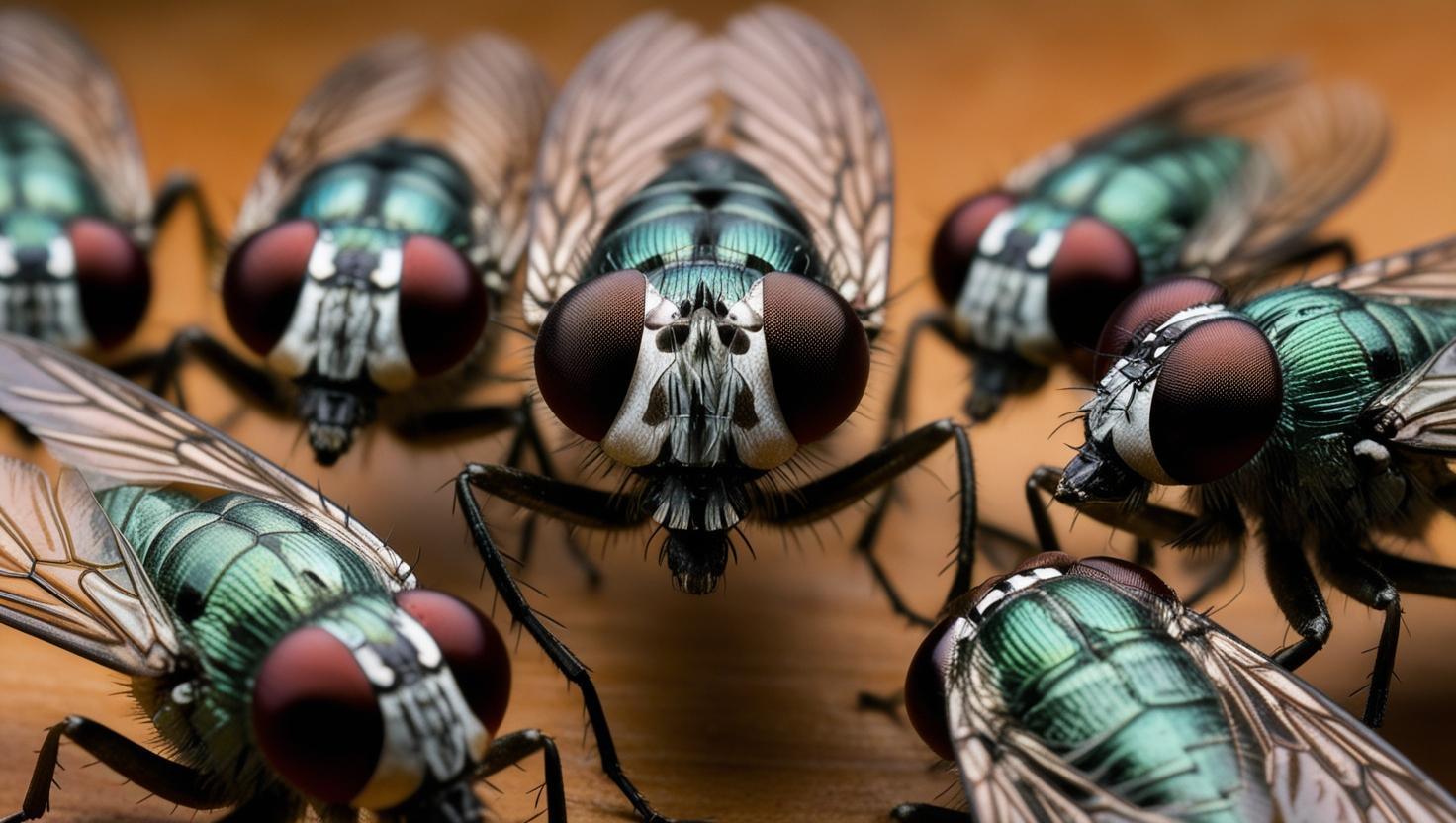 Ever feel like a fly won’t die? It buzzes, dodges, and no matter what you do, it’s still there the next day. You might wonder, “Aren’t they supposed to live for 24 hours?” Nope. That’s a myth.
Flies are some of the most common household pests, often found buzzing around kitchens, trash cans, and outdoor areas. Have you also wondered how long do flies live? They can live for weeks—some even for months—depending on the type and the environment. And if your home has food, warmth, and quiet corners, you’re giving them VIP treatment.
Let’s find out more about lifespan of flies and how long do flies live along with different stages of fly lifecycle.
Not sure if your home has become a hotspot for Flies? Schedule your Free Pest Inspection today. Our experts can quickly assess and help you manage any pest issues effectively.
Ever feel like a fly won’t die? It buzzes, dodges, and no matter what you do, it’s still there the next day. You might wonder, “Aren’t they supposed to live for 24 hours?” Nope. That’s a myth.
Flies are some of the most common household pests, often found buzzing around kitchens, trash cans, and outdoor areas. Have you also wondered how long do flies live? They can live for weeks—some even for months—depending on the type and the environment. And if your home has food, warmth, and quiet corners, you’re giving them VIP treatment.
Let’s find out more about lifespan of flies and how long do flies live along with different stages of fly lifecycle.
Not sure if your home has become a hotspot for Flies? Schedule your Free Pest Inspection today. Our experts can quickly assess and help you manage any pest issues effectively.
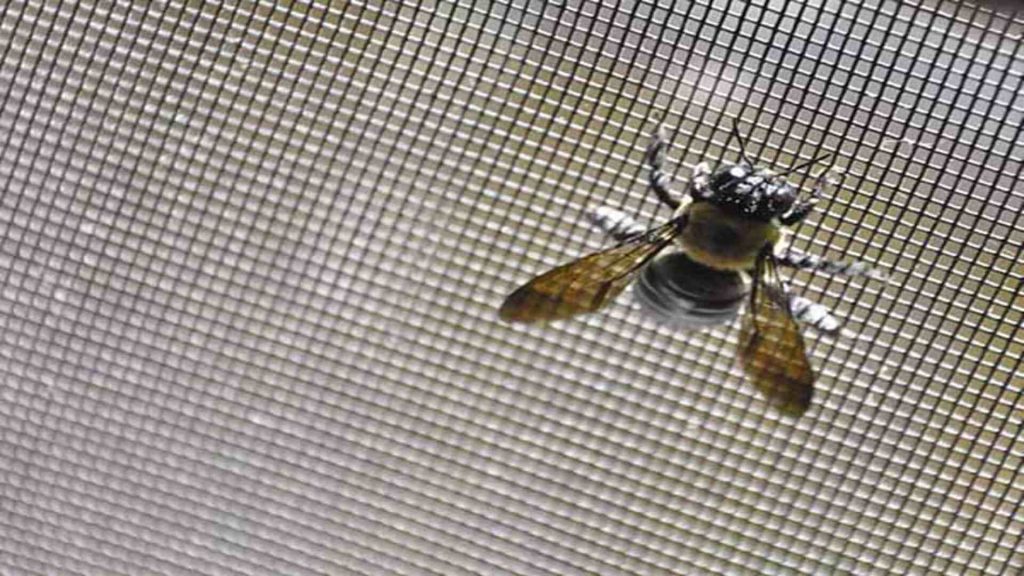

Not getting a solution?
Get your free pest control estimate today!How Long Do Flies Live?
The average lifespan of a fly varies depending on the species and environmental conditions.| Fly Type | Average Lifespan |
|---|---|
| House Fly | 15–30 days, |
| Fruit Fly | 40–50 days |
| Drain Fly / Gnat | 7–14 days |
| Cluster Fly | 1–3 months (often dormant) |
| Horse Fly | 30–60 days |
Facts About Their Lifespans
-
House Flies: Thrive in warm environments and reproduce quickly, allowing infestations to grow rapidly under favorable conditions.
-
Fruit Flies: Live longer than many common flies and breed quickly, making them persistent household pests when food or organic waste is left out.
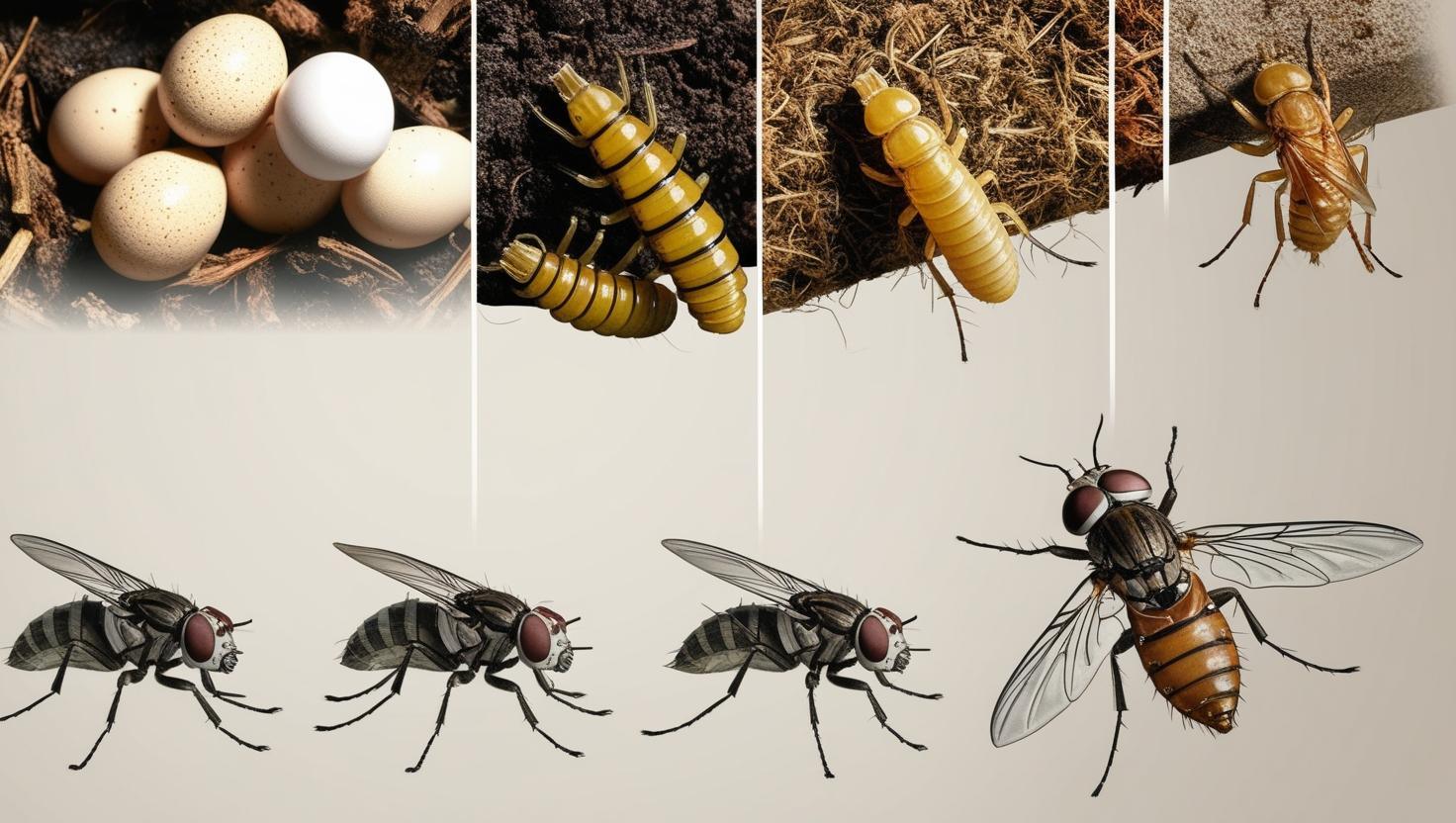
The Lifecycle of Flies
Flies don’t live long, but move fast through their life cycle. That’s what makes them so hard to control. One fly can lead to hundreds in just days. Flies undergo a complete metamorphosis, moving through four distinct stages in their lifecycle:Fly Life Cycle Stages
-
Eggs: Female flies lay eggs in decaying organic material or moist spaces, like garbage, compost, spoiled food, or animal waste. A single fly can lay 75-150 eggs at a time and up to 500 eggs in her lifetime, and these hatch within 8-24 hours.
-
Larva (Maggot): The maggots emerge hungry and grow fast. Once the eggs hatch, larvae feed on the surrounding organic matter. This stage lasts about 3-7 days, depending on temperature and food availability. Then, they leave the food source and look for dry spots to hide.
-
Pupa: Larvae develop into pupae also called as Adult Flly , encasing themselves in a protective shell. This transformation stage lasts about 3-5 days and cooler temperatures slow the process down.
-
Adult Fly: Once it’s out, the adult fly dries its wings and starts flying in a few hours. Fully developed flies emerge and start reproducing within 24-48 hours of reaching adulthood. The cycle then repeats- From Egg to adult? The whole process can take 7 to 10 days if it’s warm, making flies one of the fastest-reproducing pests and their problem getting out of hands quickly.
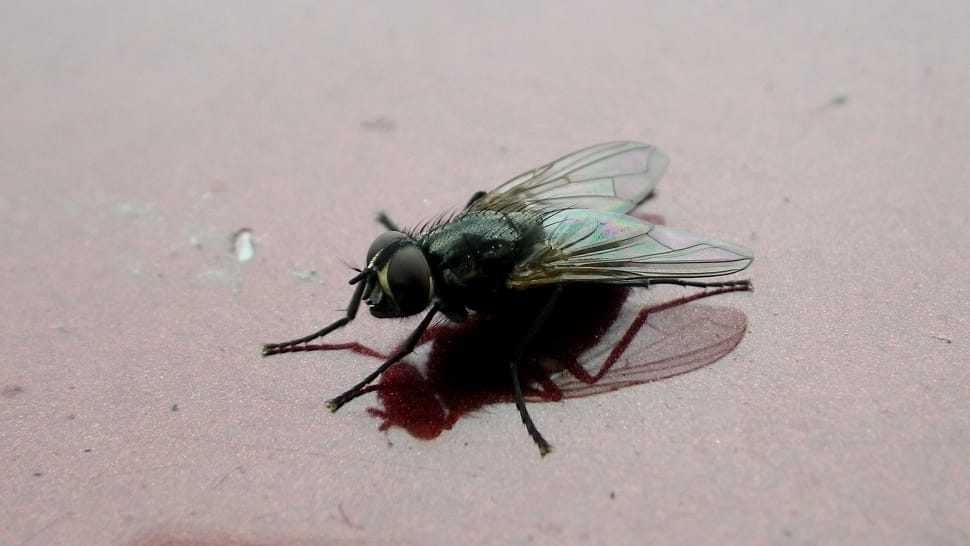
Where Do Flies Lay Eggs?
Flies are prolific breeders, and their ability to reproduce quickly is one reason they are so common. Female flies lay their eggs in decaying organic material, such as rotting food, animal carcasses, and manure. These locations provide a nutrient-rich environment for the larvae, which feed on the organic material as they develop. The eggs hatch in 24 hours, and the larvae, also known as maggots, begin feeding immediately. Understanding where flies lay eggs can help you control their population by eliminating these breeding grounds.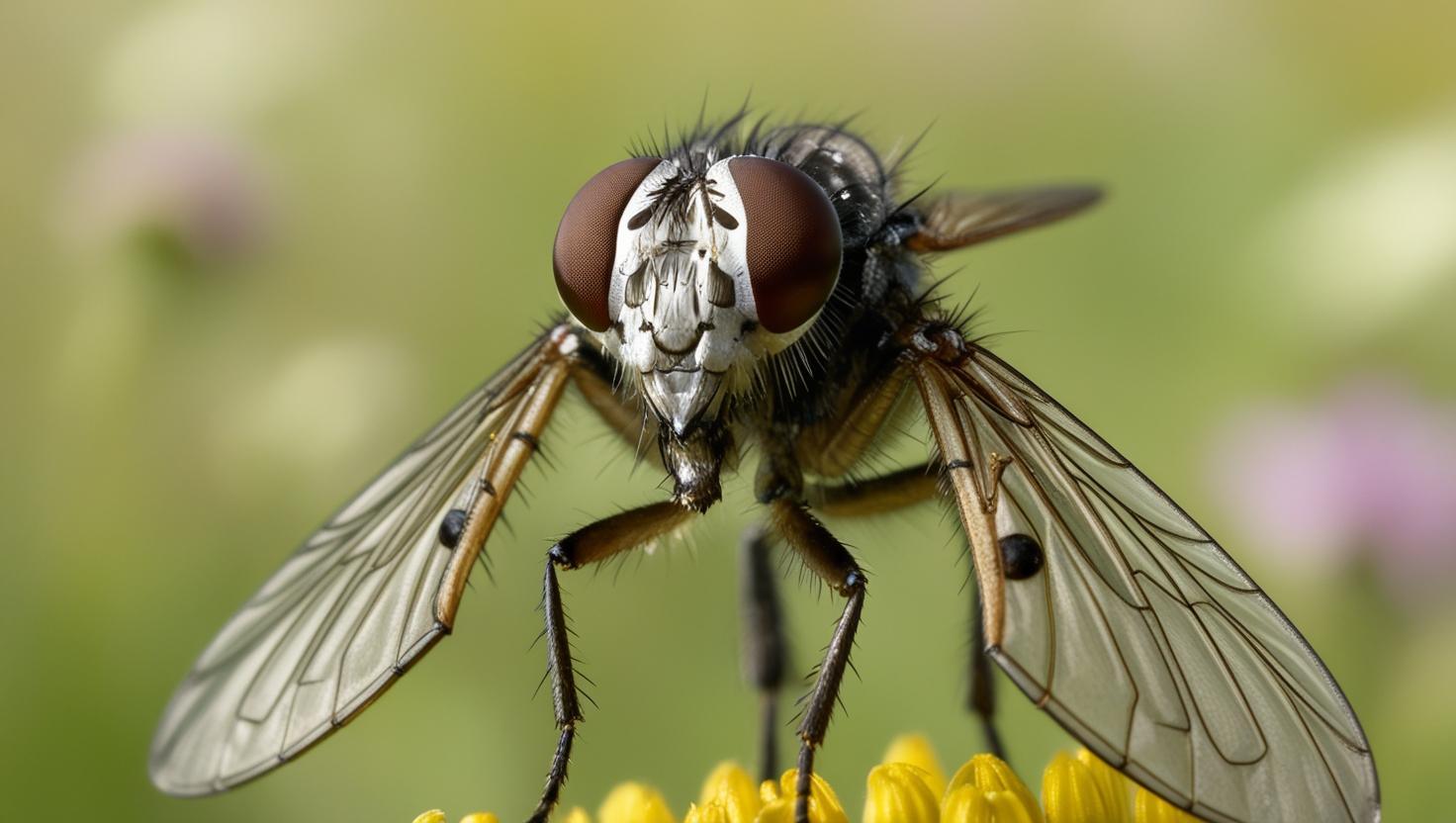
Houseflies: The #1 Pest in Your Home
-
Most Common Indoor Fly: Houseflies are the most frequently encountered indoor fly species across the U.S., known for their speed and high reproduction rate.
-
Average Lifespan: Adult houseflies typically live 15 to 30 days under normal conditions.
-
Survival Without Food: They survive only 2–3 days without access to food.
-
Effect of Cooler Temperatures: In cooler environments, houseflies may live longer, especially if they remain inactive.
-
Females vs. Males: Female houseflies tend to live longer than males due to their role in laying eggs gradually over time.
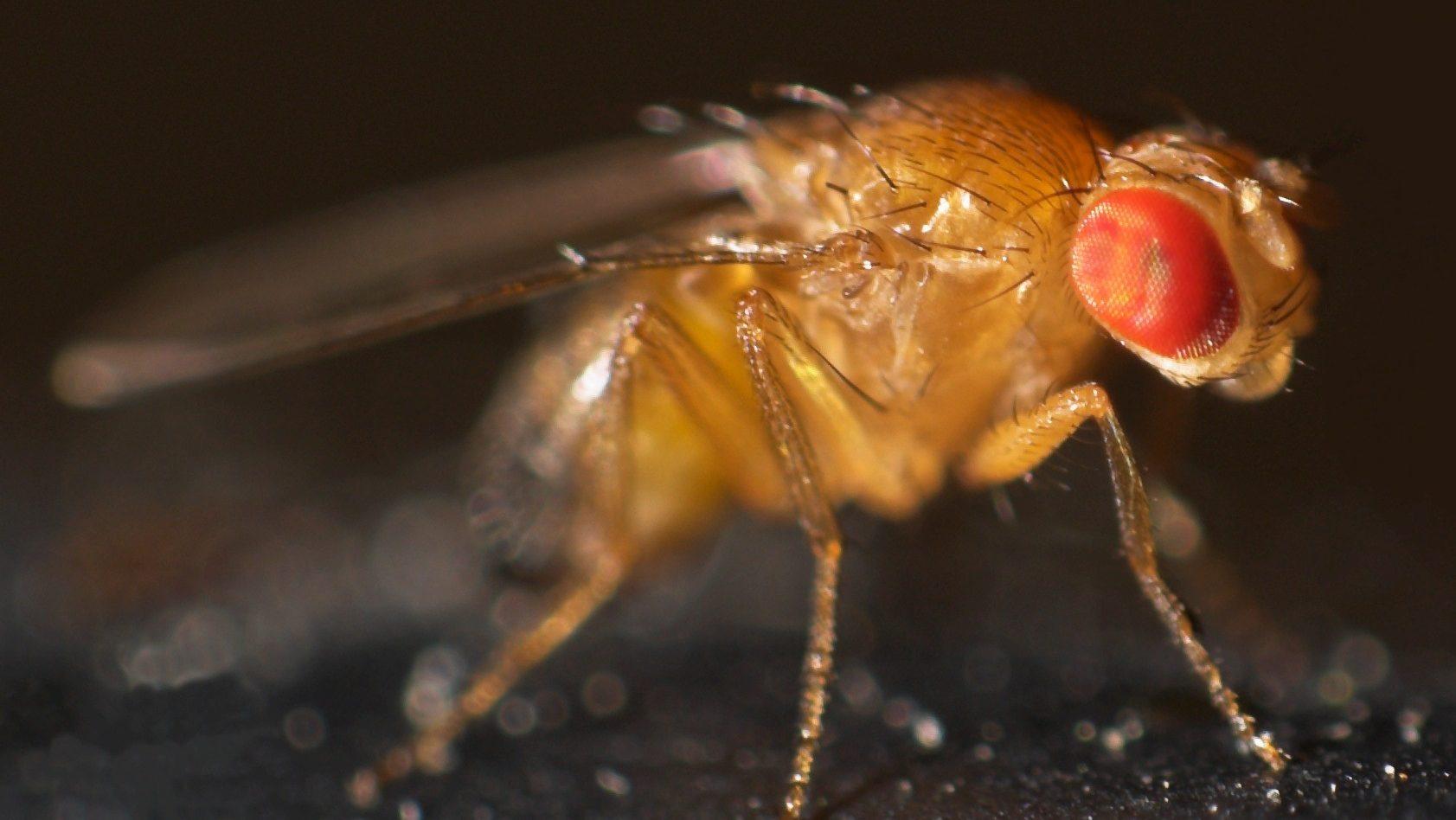
Fruit Flies: Tiny, Sneaky, and Stubborn
- Fruit flies might be small, but they’re masters at sneaking into kitchens and pantries unnoticed. Once inside, these stubborn pests can quickly become a frustrating presence in your home.
-
Smaller but Persistent: Fruit flies are tinier than houseflies, but they live longer and reproduce at a faster rate.
-
Adult Lifespan: They typically live for 40–50 days, making them more persistent in households.
-
Rapid Development: Fruit flies can go from egg to adult in just 8–10 days under the right conditions.
-
Early Mating: They begin mating within 12 hours of reaching adulthood, allowing populations to explode quickly.
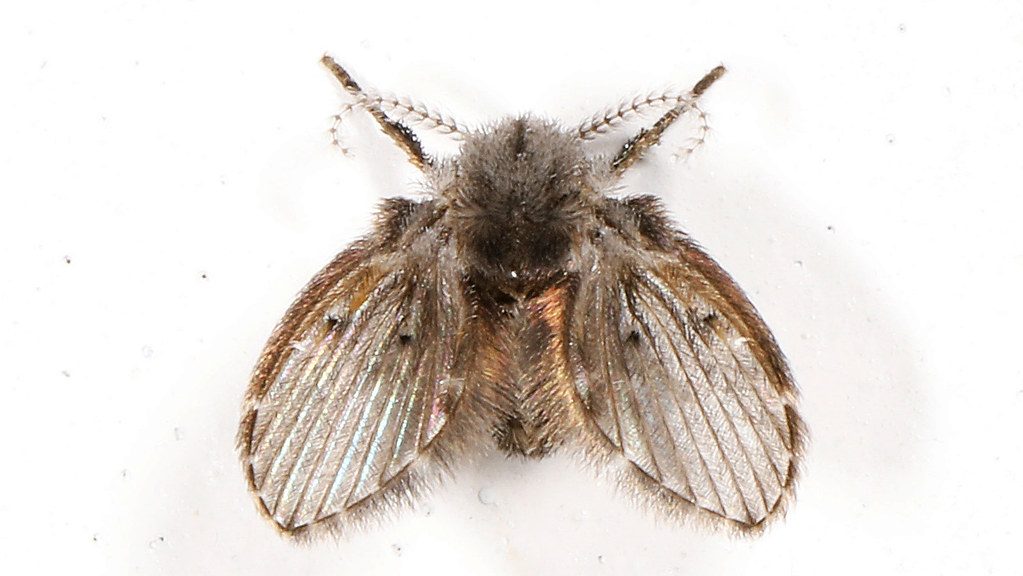
Drain Flies and Gnats: Quick but Relentless
- Drain flies and gnats may be tiny and quick, but their persistence is unmatched. These relentless pests can rapidly multiply, making your home feel invaded in no time.
-
Short Lifespan: These flies live only 7 to 14 days, but their rapid reproduction makes them hard to control.
-
Common Habitats: Often found in sink drains, overwatered plant soil, and moist trash bins—anywhere damp and organic material accumulates.
-
Breeding Behavior: They breed discreetly and can appear in large numbers seemingly overnight.
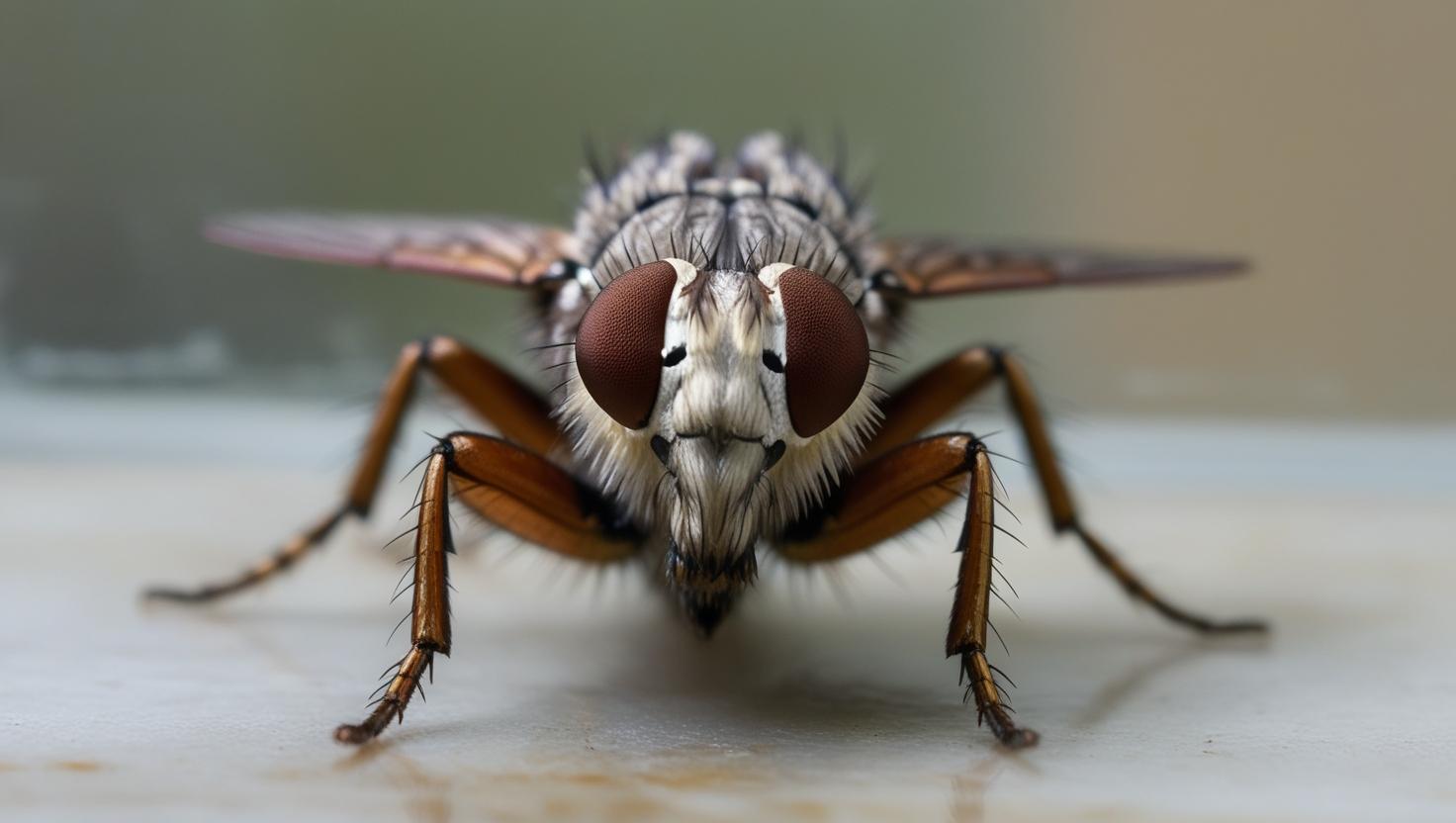
Cluster Flies: The Long-Staying Guests
-
Long Lifespan: Cluster flies can live 1–3 months, especially when overwintering indoors.
-
Winter Survival: They seek shelter in attics, wall voids, and cracks to survive cold months, emerging in spring.
-
No Indoor Breeding: Unlike other flies, they don’t reproduce inside homes, but will return annually unless entry points are sealed.
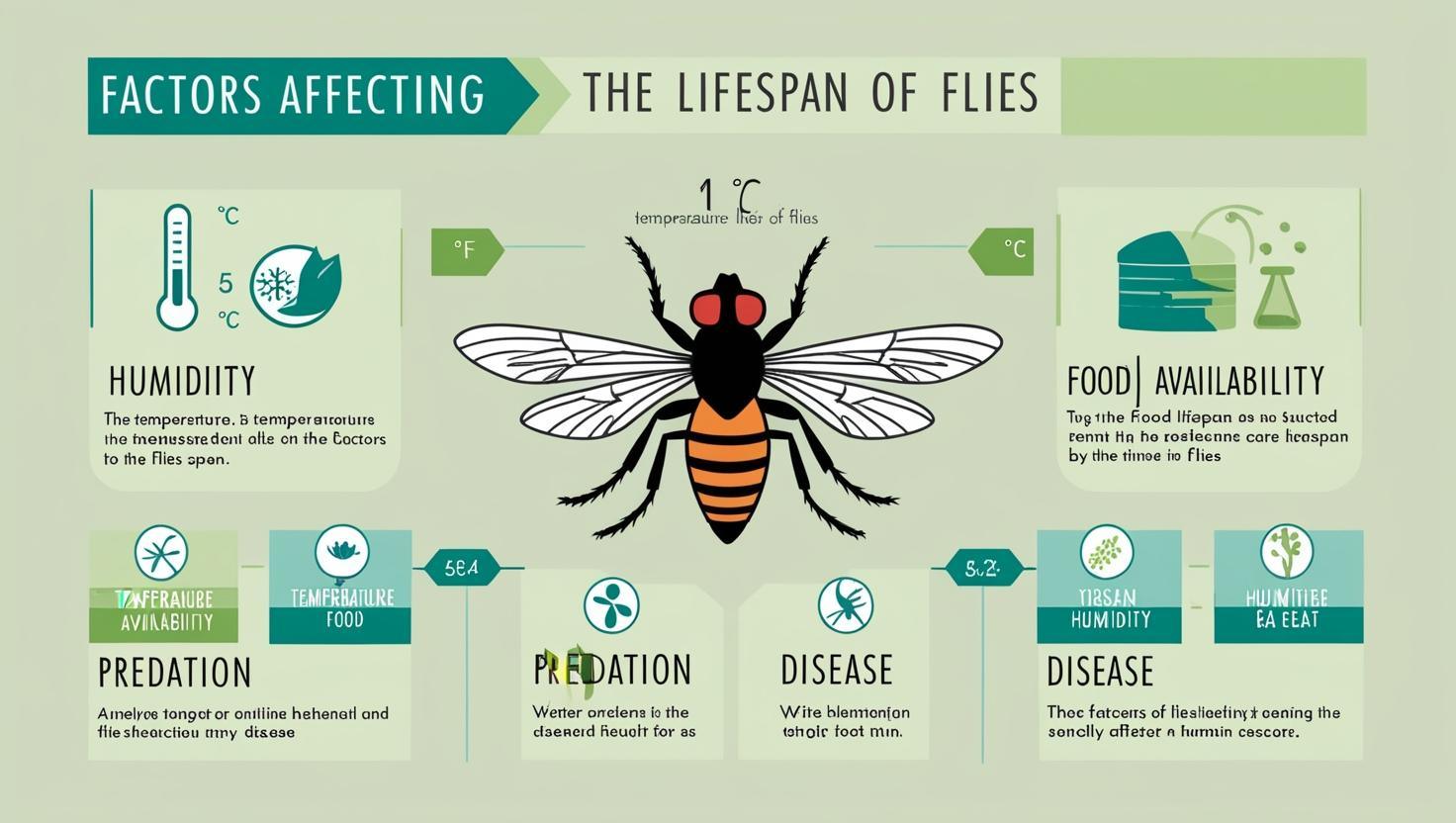
What affects how long flies live?
Let’s break it down:Temperature
-
Warm Conditions: Accelerate growth and reproduction but lead to shorter lifespans.
-
Cool Conditions: Slow down development and extend survival time.
-
Below 60°F: Flies may become dormant, conserving energy until warmer conditions return.
Food and Moisture
-
Lack of Food: Flies typically die within 2–3 days without access to food.
-
Moisture Availability: Moist environments support longer survival by preventing dehydration.
-
Food Sources: Crumbs, spills, and pet food provide easy sustenance, especially indoors.
Species and Sex
-
Female Longevity: Female flies generally live longer than males, especially in species like fruit flies and cluster flies.
-
Longer-Lived Species: Fruit flies and cluster flies tend to have longer lifespans compared to other common species.
-
Houseflies: Have a shorter lifespan but reproduce rapidly, leading to quick infestations.
Predators and Environment
-
Indoor Threats: Humans use traps, sprays, and cleaning to limit fly survival indoors.
-
Outdoor Threats: Flies face natural predators like birds and spiders, as well as environmental conditions like rain and wind.
-
Trap Effectiveness: Fly traps and baits are effective tools that can significantly reduce fly populations.
Why Lifespan matters for Infestations
A single fly is not a big deal. But that one female? She could lay hundreds of eggs before she dies. Even if the adult dies in a few weeks, her eggs hatch, and you’ve got a fresh batch within days. That’s why infestations feel endless. And why can’t you swat a few and wait? You have to interrupt the life cycle.
Tips to Prevent Fly Infestation
-
 Maintain Cleanliness: Keep your home clean and free of food spills, crumbs, and pet waste.
Maintain Cleanliness: Keep your home clean and free of food spills, crumbs, and pet waste. -
 Clean Garbage Bins: Regularly clean garbage bins and ensure they are tightly sealed.
Clean Garbage Bins: Regularly clean garbage bins and ensure they are tightly sealed. -
 Dispose of Organic Waste: Dispose of decaying organic matter like food scraps and yard waste promptly.
Dispose of Organic Waste: Dispose of decaying organic matter like food scraps and yard waste promptly. -
 Fix Leaks and Clean Drains: Fix leaks and clean drains to prevent flies from laying eggs in moist areas.
Fix Leaks and Clean Drains: Fix leaks and clean drains to prevent flies from laying eggs in moist areas. -
 Block Entry Points: Use window screens, door sweeps, and air curtains to block flies from entering.
Block Entry Points: Use window screens, door sweeps, and air curtains to block flies from entering.





